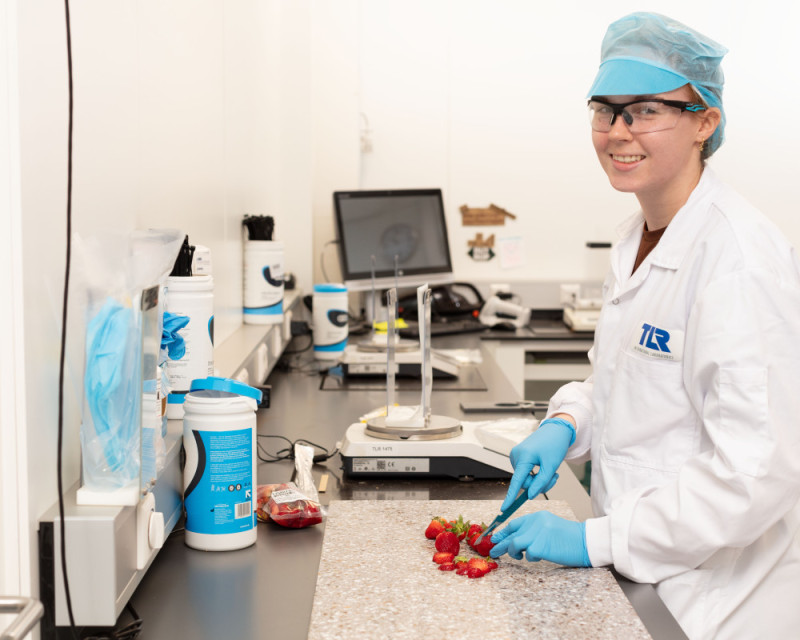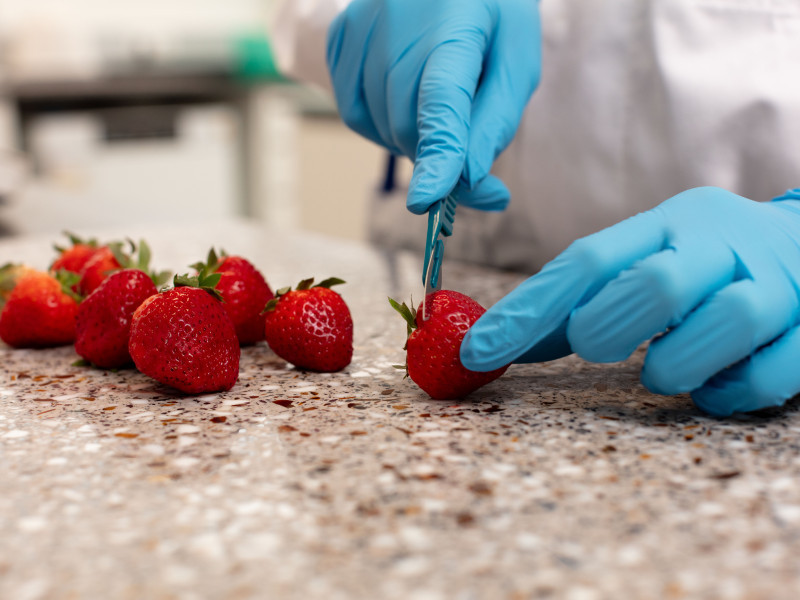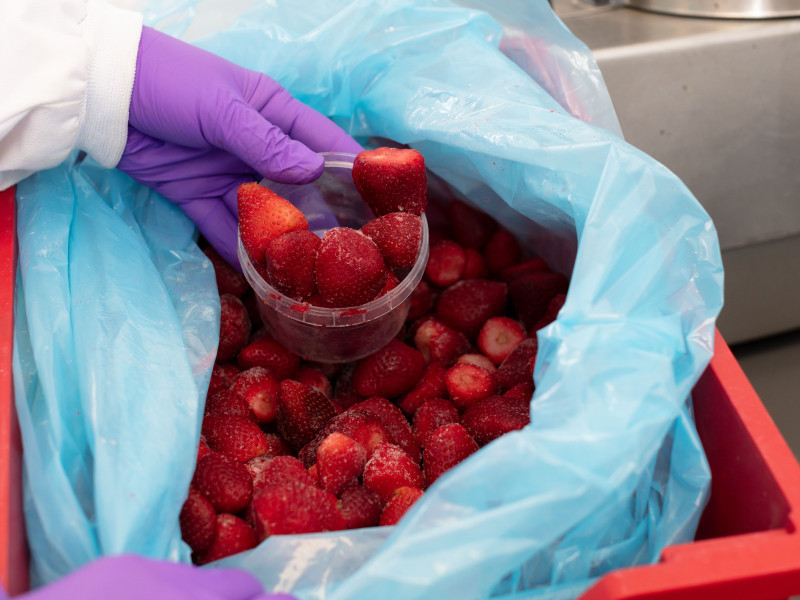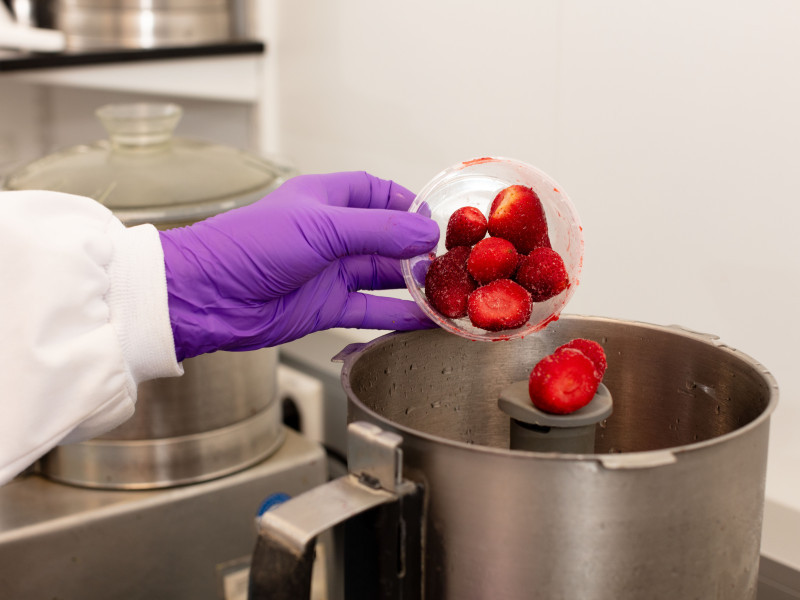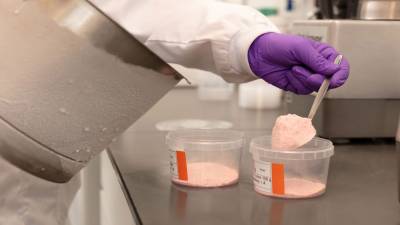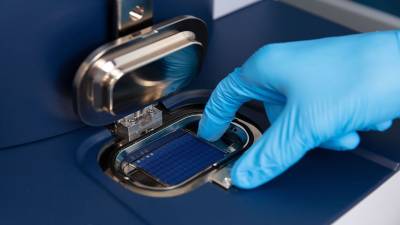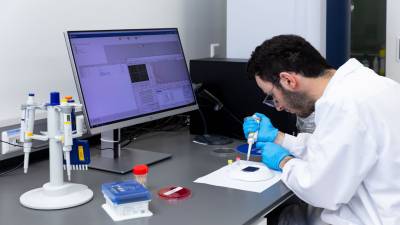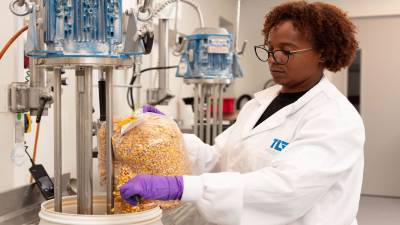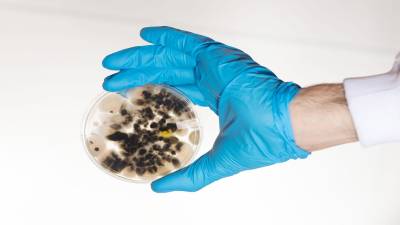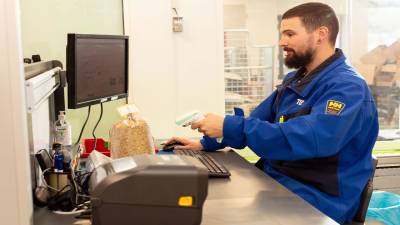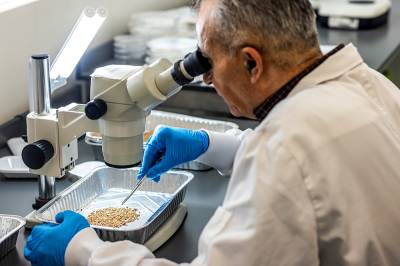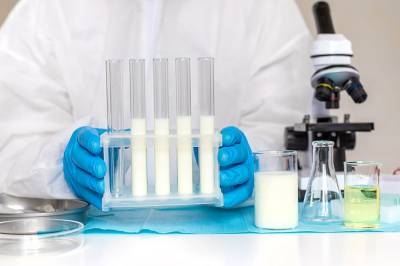Detection of Norovirus in Soft Fruit
Norovirus is one of the most common causes of foodborne gastroenteritis. Soft fruits (such as strawberries, raspberries, blackberries, blueberries) form a critical risk group due to raw consumption and the potential for contamination during cultivation, harvesting, packaging or distribution.
TLR Analysis Process
- Sampling & Reception
Upon arrival, batch numbers, lot details and storage conditions are recorded. - Sample Preparation
TLR follows internal procedures for extracting viral particles from the fruit matrix.
Method TL762.43A/C is developed in-house based on NEN-EN-ISO 15216-2 for norovirus detection in soft fruit. - Molecular Analysis (RT-qPCR)
Real-time RT-PCR is used to detect norovirus genogroups GI and GII with high specificity.
Validation with internal control strains and negative/external controls ensures reliability. - Confirmation & Interpretation
Positive results are confirmed via deviation analysis and/or test repetition.
Results below the reporting threshold are optionally communicated to the client. - Reporting
Results are presented with Ct values, detection level (e.g. genome copies/g) and an interpretative conclusion.
The report complies with ISO 17025 standards and includes method details, references and traceability information.
Technical Specifications: Norovirus Testing
- Method: Real-time RT-PCR according to TL762.43A/B/C, based on NEN-EN-ISO 15216-2
- Genogroups tested: Norovirus GI and GII
- Requirements: Includes internal/external controls and replicates
- Reporting unit: Genome copies per gram or Ct value
- Detection limit: As per validation protocol (
- Reporting elements: Method description, results, interpretation, quality guarantees
Quality Assurance & Accreditation
This analysis is part of accreditation scope L059 (RvA, ISO/IEC 17025:2017), valid from 21 July 2025 to 1 February 2028.
TLR applies strict validation (e.g. source of viral reference strains), full traceability from sample to report, and documented conformity procedures.
Practical Applications for Clients
- Food Safety: Early detection helps prevent outbreaks.
- Operational Efficiency: Fast turnaround - RT-PCR results within 48 hours.
- Transparency: Clear reporting, even with non-detects, including scope context and analytical margins.
- Compliance: Suitable for export to markets with strict microbial standards (e.g. EU, US).
Conclusion
TLR offers a robust and accredited method for norovirus detection in soft fruit. Through an efficient sampling process, validated procedures and ISO 17025 compliance, the laboratory ensures reliable data to support food safety and regulatory adherence.
Meld je aan voor de laatste tips en adviezen dat je gelijk in de praktijk kunt brengen.

